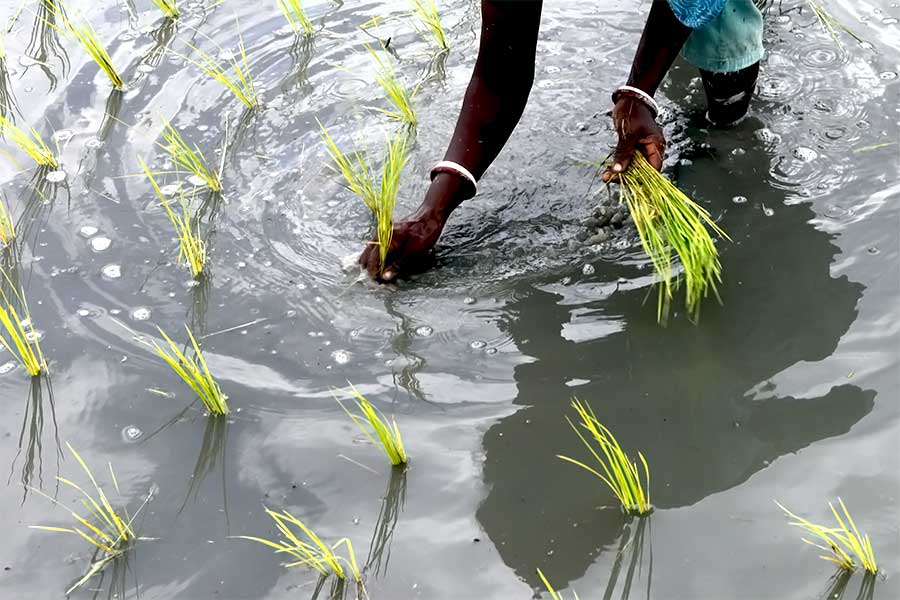
Published :
Updated :

With a positive and significant transformation taking place in Bangladesh's agricultural sector, the policies related to this are getting more complex, according to a paper presentation.
Consequently, it has become crucial to ensure good governance in the country's agri-food system through better coordination among all stakeholders, the paper said.
The paper titled 'Structure of Bangladesh Food System' was presented at a session on Global Price Shocks and Food Security on the second day of the Annual BIDS Conference on Development (ABCD) held at a city hotel on Friday.
Director of the Development Strategy and Governance at the International Food Policy Research Institute (IFPRI) Paul Dorosh was the session chair.
BIDS Director General Dr Binayak Sen and Senior Research Fellow of the BIDS Kazi Iqbal were present at the session, among others
Director of Foresight and Policy Modelling at the IFPRI James Thurlow presented the paper on Structure of Bangladesh Food System.
Comparing the agri-food systems in different countries, he said Bangladesh's agri-food system is making progress as expected.
"Off-farm components are growing faster than primary agriculture, helping drive positive structural change in the overall economy," he said.
Danielle Resnick, a senior research fellow of the IFPRI, presented another paper on 'Governance of Food System'.
She said, "Bangladesh along with other countries faces challenges with their food system governance, as there are more actors, interests and coalitions in agricultural value chains.
"Even off-farms' stakeholders like banking, insurance and ICT companies are also active in food systems," she added.
In some countries, there also remains lack of accountability mechanisms to ensure the government upholds their food system commitments.
Angga Pradesha, senior scientist at IFPRI's Foresight and Policy Modeling, presented a paper on 'Impacts of the Global Price Shocks on the Bangladesh Food System'.
The paper says agricultural transformation introduces new sources of vulnerability for Bangladesh's agri-food system as there are more agri-food system (AFS) sectors beyond the farm that are exposed to a wider range of shocks and crises.
"Recent crises had quite different implications for Bangladesh's AFS. Covid-19 had a large impact on the overall economy, but was less detrimental to primary agriculture," he said.
Spike in global prices in 2020 more directly affected food systems, leading to relatively larger poverty and hunger impacts, he said.
Agrifood system transformation means that a more complex set of policies are needed to manage crises, he added.
Paul Dorosh talked about Implications for Policy and Further Research.
He said Bangladesh's economy has become more diversified over time with implications in agriculture.
saif.febd@gmail.com


 For all latest news, follow The Financial Express Google News channel.
For all latest news, follow The Financial Express Google News channel.